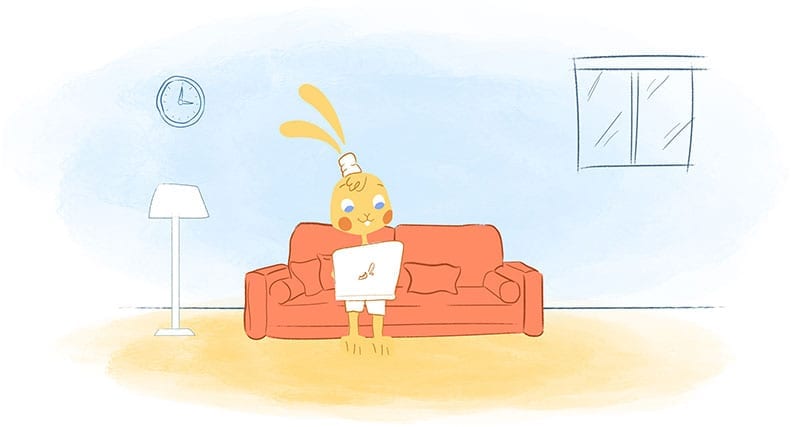

Like so many other entrepreneurs, I have a million different thoughts and ideas. And, while it would be great to chase as many of them as possible, the truth is that’s just not possible. Even if I were excited about a new business venture or hobby, that shiny object begins to fade.
In other words, eventually, you become less motivated and excited to finish what you started. That may not seem like a big deal. But, if you’re a serial starter, that could come at a great expense. I’m not only talking about financially either. I’m talking about the hours you wasted, as well as not experiencing the joy of finishing. See, when you see something through until the end, you get a dopamine rush that pushes you to repeat the behavior.
Thankfully, there are ways to accomplish whatever it is that you’ve started. And, here are some of my personal favorites.
Commit to less.
Micheal Jordan once offered the following words of advice. “If you quit, once it becomes a habit. Never quit.”
I get where MJ is coming from. And, while inspiring, I do have to question His Airness here. See, not all things are worth finishing. But, that’s something you should decide before getting too involved with a hobby, project, or even a business idea.
One technique that can help you figure this out is by viewing anything that you undertake as either an experiment or commitment.
“Experiments are okay to quit,” writes Scott H. Young. “The goal of the experiment is not to be afraid to try something out, so you want to lower the barriers to getting started.” And, if it’s something that you are not feeling, then you don’t have to pursue any further.
Commitments, on the other hand, “need to be carried out to the very end,” explains Scott. “The goal of a commitment is not to break your finisher’s habit.” In fact, “unless it becomes impossible to finish your commitment, you continue going forward with it.
“If you build these two mental categories, then you now have an easy way of forcing yourself to stick to a project until the end,” adds Scott. And, by deciding if “it’s an experiment or commitment, in advance,” then you can “start building the habit of finishing them without exception.”
Scott adds that creating this split will give you “the power to finish things that matter to you, regardless of whether you’re always motivated to work on them.” And, it will make you commit to only the things that you’ll see-through.
Avoid getting stuck.
“Starting a new project is like falling in love,” states Susan K Perry, Ph.D. “It’s exciting, emotionally arousing, and infused with the natural motivator of novelty.” Unfortunately, as time goes on, you realize that this is going be a lot harder than you initially thought. And, that gets you so stuck that everything grinds to a halt.
The good news is that you avoid this by taking the following steps:
- Become more aware of your pattern of starting and stopping. Reflect on past activities and think if you saw them through or quit so you can find commonalities.
- Research more deeply into your next project before jumping in. Know precisely what you’re getting into so that you can identify roadblocks.
- Know yourself and try to be realistic. Set goals that you’ll achieve.
- Make a timeline or write out a set of steps toward your goal. It’s an effective way to provide structure, develop a plan of action, and stay focused.
- Ensure your primary motivation is intrinsic. Make sure that you’re doing this for “personally meaningful reasons.”
Just get started.
After you’ve laid the groundwork, it’s time to dive right in. I know that sounds simple. But, once you do, you’ll find that it’s a lot harder to throw in the proverbial towel.
There are a couple of reasons why this happens. To begin with, you build momentum. You can then use that to stay motivated. There’s also some psychology here as well. Mainly, it’s something called the Zeigarnek Effect. As Max Palmer explains in an article for Calendar, this “states that the brain remembers incomplete tasks more than those we’ve done.” Moreover, “we can’t focus on anything else until the task is done and over with.”
And, it’s also been found that working is less painful then procrastinating. To put this another way, you may believe that learning to play the piano or working out will be too difficult. But, when you get into it, you’ll discover that it’s not all that bad and it possible.
Stop saying that you don’t have time.
Here’s what I’ve learned over the years. We use this as an excuse not to follow through on our commitments. There are probably a million reasons why. But, if this were something that you were truly passionate about, then you would make it a priority.
There’s no right or wrong way to prioritize But, the most helpful strategies for me have been knowing “why” I’m doing something and managing my time. Both may seem ambitious and overwhelming. But, in reality, it’s rather simple.
Finding your “why” is just remembering what excites you about what you’re doing. It’s the reason why you persist. And, it’s the rewarding feeling you get when you’ve reached your conclusion.
As for managing your time, it’s all about only focusing on what you need to get done right now — determining what’s urgent and essential. Everything else can be deferred, delegated, or dropped from your schedule. When you do this, you’ll have the extra time to see things through the end.
Eliminate obstacles.
Is it possible to anticipate every obstacle that comes your way? Of course not. But, you should always have a plan B.
Let’s say that you just started a workout regiment that involves running outside. You’ve been sticking it for the last week until you check the forecast for tomorrow. It’s going to rain cats and dogs. Instead of shrugging this off and saying you’ll run another day, you’ll run on a treadmill at the gym.
Another way to achieve this is is by avoiding the “planning fallacy.” First proposed by Daniel Kahneman and Amos Tversky in 1979, this is “the tendency to underestimate the amount of time needed to complete a future task, due in part to the reliance on overly optimistic performance scenarios.” As a result, we may give up on something because it’s taken much longer to finish then initially thought.
There several ways that you can prevent this from happening. The most obvious is being realistic. You’re not going to be fluent in a new language in six months. It’s going to take years for you to master this skill. If you’re upfront about this from the get-go, then you won’t be disappointed when you didn’t meet that unattainable goal.
Get comfortable creating garbage.
I’m in no way advocating that you phone it in. The point I’m taking to make is that whatever you’re trying to finish will never be perfect. It may be considered “trash” during your first attempt. But, keep plugging away until you feel proud of what you’ve accomplished.
Or, to put it another way. Think back to the first blog post you wrote. How about the first time you played a musical instrument or cooked for your family during a holiday? I doubt that everything turned out flawless. But, you learned from your mistakes and kept going until you blurted out, “That’s pretty good.”
Track your progress.
Reviewing how your doing is another effective way to keep the momentum going. The reason? It lets you see how you’re doing and the targets that you need to reach.
“Set up a system for tracking,” suggests R.L Adams. “If your goals are measurable, then they’re trackable.” R.L also recommends that you track them daily. “Similar to how a plane would chart and track its progress from moment to moment, you need to track your own progress to ensure that what you’re doing is working,” he adds.
Keep yourself accountable.
Finally, hold yourself accountable. Sometimes you just need to build up your self-discipline. Maybe wake-up fifteen minutes earlier or spend less time watching TV. Other times you may need to call in reinforcements.
For example, you could ask your mentor how they stuck with their business. Or, you could gamify your accountability with others.
“Instead of rewarding yourself, how about playing on social accountability?” asks Benjamin Brandall over at Trello. “Make a deal with one friend that you will help each other stay on task by texting your top 3 important tasks — tasks you want to accomplish by 9 pm.”
When the clock strikes 9, “send a second text updating them with anything that hasn’t been finished. For each unfinished task, your friend needs to do a predetermined punishment,” such as 30 pushups.











Albert Costill
My name is Albert Costill and I'm a content marketer at Calendar. If I can help people become more productive in my journey, even better. If you ever have a question about your Calendar or how you can use it - - don't hesitate to reach out. I'm a Calendar Pro.